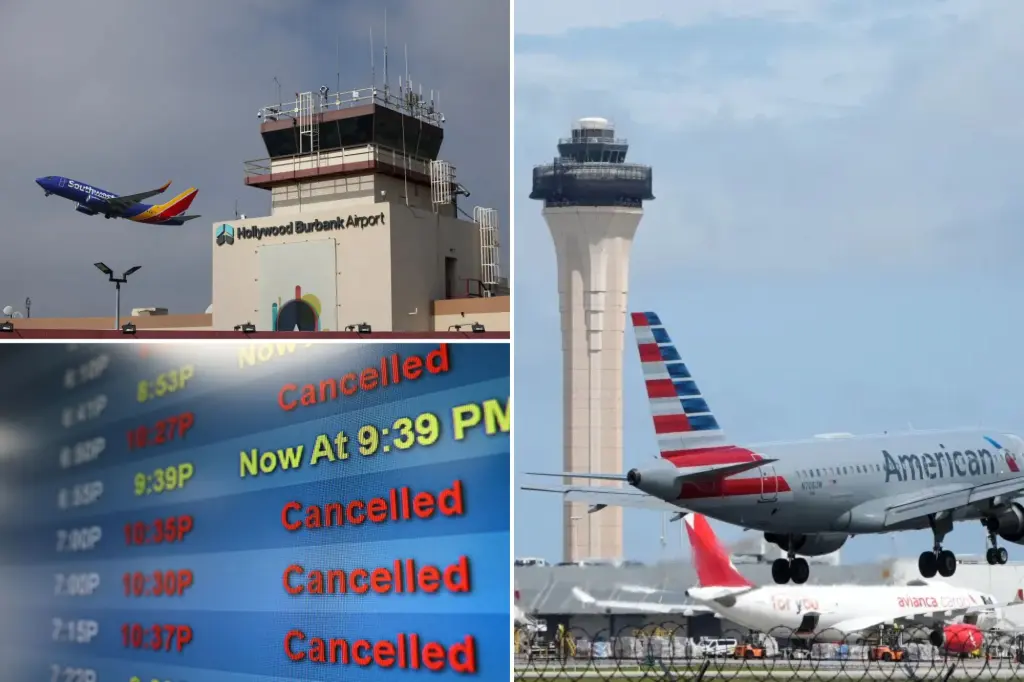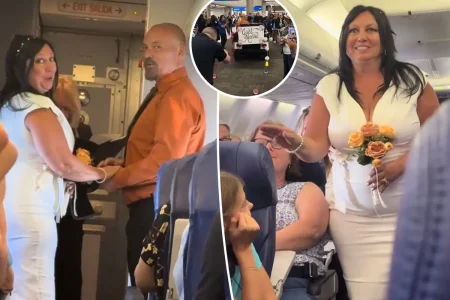The Human Cost of Air Traffic Control During a Shutdown
In the midst of America’s government shutdown, a deeply concerning situation has emerged in our nation’s skies. Air traffic controllers—the vigilant professionals responsible for the safe passage of thousands of flights daily—are working without pay as the shutdown extends into its second week. This isn’t merely an inconvenience; it represents a growing safety risk that affects everyone who boards a plane. Controllers, speaking anonymously due to fear of repercussions, describe a deteriorating situation where financial anxiety directly impacts their ability to focus on their critical work. “When someone responsible for thousands of lives a day is worrying about whether they can pay rent or feed their kids, focus suffers,” explains a controller from South Carolina. “Sometimes that small moment where your mind is elsewhere can have serious impacts.” This comes at an already sensitive time for air traffic control, following a devastating collision in Washington, DC earlier this year that claimed 67 lives, and amid ongoing concerns about radar and communications failures across the system.
The strain on the air traffic control system was evident before the shutdown, but the current situation has exacerbated existing problems to dangerous levels. “Controllers were already underwater with pay and staffing before the shutdown,” the South Carolina controller reveals. “Now we’re drowning.” The effects are becoming increasingly visible to travelers as staffing shortages lead to significant delays at airports nationwide. Transportation Secretary Sean Duffy has reported that some control towers are operating with half their normal staff as unpaid workers call out sick. The situation reached a critical point at Hollywood Burbank Airport, where the control tower went unstaffed for over five hours, while Nashville airport experienced nearly 300 flight delays in a single day due to controller shortages. A California-based controller puts it bluntly: “The shutdown is affecting every single person traveling in the United States at this time. More stress equals more risk; that’s just basic common sense.”
Those controllers who continue showing up for work face dangerous levels of fatigue from excessive overtime. The California controller confesses to logging 185 overtime hours this year already, after exceeding 400 hours last year—a pace that took a serious toll on both physical and mental health. “What passengers often forget is that the person guiding their plane through the sky is human: underpaid, overworked, fatigued and carrying immense responsibility,” he explains. “Beyond the control room, the exhaustion continues—recovering from 60-hour workweeks leaves little time for exercise, chores or family.” Adding insult to injury, controllers who rely on overtime pay fear they may never be compensated for these extra hours once the shutdown ends. The California controller notes that during the 2018-2019 government shutdown, controllers had to file lawsuits to receive overtime pay, with some settlement checks only arriving six years later. This uncertainty compounds the stress of an already demanding profession.
The financial strain has forced many controllers to consider taking on second jobs—a worrying prospect for professionals whose primary role requires absolute concentration and alertness. As Transportation Secretary Duffy observed, controllers now face impossible dilemmas: “How am I going to pay my mortgage? Do I have to take a second job and drive Uber when I’m already exhausted from doing a job that’s already stressful?” However, according to the controllers who spoke anonymously, many in the industry have long been working additional jobs simply to make ends meet. “The shutdown didn’t create the problem; it magnified one that’s been growing for years,” explains the South Carolina controller, who has worked with the FAA for over a decade and has three children to support. Despite the Bureau of Labor Statistics reporting a median pay of $144,580 for air traffic controllers, the reality is more complex. The South Carolina controller earns less than the median and notes that “at smaller facilities [controllers] make under $95,000, which is barely middle class in most cities today.” This financial insecurity has pushed many controllers to take on side jobs that potentially distract them during their primary work hours.
With no immediate end to the shutdown in sight, the situation grows increasingly precarious. FAA employees are scheduled to receive only a partial paycheck on October 14, followed by no paycheck at all on October 28. These professionals, who bear immense responsibility for passenger safety, face mounting personal financial crises while trying to maintain their focus on preventing aviation disasters. The mental and emotional toll cannot be overstated. Controllers report working through financial anxiety, family stress, and physical exhaustion—all while maintaining the split-second decision-making capabilities their job demands. The California controller explains that the current standard of operation isn’t sustainable: “No one should have to live this way.” The human cost of the shutdown extends far beyond government buildings in Washington, DC, affecting the complex system that keeps our skies safe.
Despite these extraordinary challenges, controllers remain committed to maintaining safety standards—often at great personal cost. “The only reason the system still functions is because the people on the mike refuse to fail,” the South Carolina controller emphasizes. “But that commitment comes at a personal cost to our mental and physical health that keeps getting higher.” Their dedication represents both the strength and the vulnerability of our air traffic system. These professionals continue to guide planes safely through increasingly turbulent professional circumstances, but the strain is showing in staffing shortages, increased sick leave, and mounting stress. As the shutdown continues, the question becomes not just when controllers will receive their next paycheck, but how long they can sustain the mental clarity and focus required for this critical safety role while under such immense personal pressure. For now, passengers boarding flights across America depend on the professionalism of controllers who continue showing up to work—unpaid, overstressed, but unwavering in their commitment to aviation safety.















